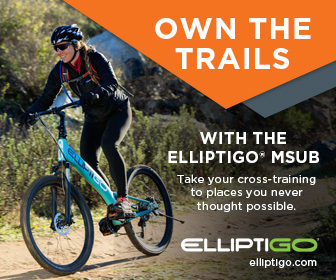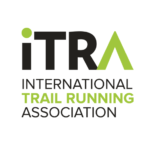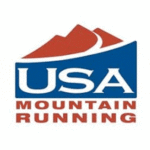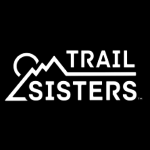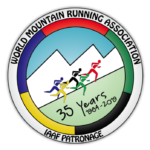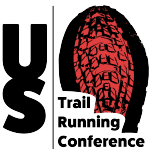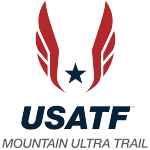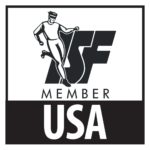
Announcement from American Trail Running Association partner US Trail Running Conference.
Industry leading event shares insights to help move trail running towards a sustainable, safer and more diverse future.
The ninth annual US Trail Running Conference took place October 27-30, in Fayetteville, Arkansas, and offered presentations and panel discussions, morning trail runs and vendor displays that educated and inspired an engaged audience of trail running aficionados. The event attracted more than 150 race directors, speakers, sponsors, exhibitors and trail runners who joined in-person or virtually, with 26 states represented as well as international participation from Mexico, Spain, England, the Netherlands, Ecuador, Scotland, and Canada. The Conference was presented by Ultrasignup, and Spartan Trail.
The theme for this year’s event was “Trail Running as a Restorative Sport,” with each day focused on specific initiatives related to the theme. One outcome from last year’s Conference was to focus on a broader reach which yielded significant increases in the diversity of participants this year. Participants identifying as Black or African American increased by a factor of ten compared to 2020, and participants identifying as Hispanic or Latino increased by a factor of three. Participants identifying as female also increased by 2% compared to 2020 data.
This year’s speaker line up was the largest to date, comprising 60 individuals either in person or virtually, more than double the number featured in 2020. The diversity contained in the speaker program also reflected significant progress in many aspects, with 35% identifying as women, 22% as people of color, 5% from the LGBTQ+ community and 3.5% adaptive athletes.
The initial three days were dedicated to content for trail race directors, with each day focused on an aspect of restorative initiatives. The first day, Wednesday October 27, focused on climate and sustainability. The keynote speech was delivered by professional mountain, ultra trail runner (MUT) and environmental activist, Clare Gallagher. She centered her comments on reconnecting with trail running as a restorative sport to strengthen our communities and the environment.

Photo: Peter Maksimow.
Day 1
The first session covered sustainable innovation for trail races, where leader Paul Jurasin explained how to use “Future and Design Thinking” techniques to problem solve and generate innovation.
Following a lunch break, Nathan Nicholas from Nicholas Hill Group presented the benefits of their Trail Running Insurance Protection program, as well as cancelation insurance to cover race directors in the event of a race being canceled due to factors related to climate change.
The first panel session covered “moving the sport to zero carbon,” and featured Shelley Villalobos from the Council for Responsible Sport, Claire Lafave from Native, and David Callahan from presenting sponsor Ultrasignup. Callahan shared news on a consortium of engaged parties in the sport who are working together to produce initiatives to help move the sport to zero carbon.
The final panel session of day one covered “Producing Successful Sustainable Trail Races — Focus On Waste and Social Sustainability.” Speakers included Steve Aderholt, freelance race director at One Step events and founder of the Ragnar Trail series, Bruce Rayner, Chief Green Officer of Athletes for a FitPlanet, Celia Santi, Senior Brand Experience Manager at GU Energy Labs, and Peter Nierengarten, Fayetteville Environmental Director.

Photo: Peter Maksimow.
Day 2
The second day was focused on diversity and initiatives to increase inclusivity across the sport. The first session was a virtual panel titled “Empowering the Trail and Ultrarunning Communities to Combat Sexual Assault and Harassment.” The panel was moderated by Crista Scott Tappan, founding member of the Runners Equity Alliance, and speakers included Jordan Marie Daniel, founder of Rising Hearts and nationally renowned advocate for Missing and Murdered Indigenous Relatives (MMIR) and native youth initiatives, Jody Sanborn, Director of Prevention with the Wyoming Colatition Against Domestic Violence and Sexual Assault, and Dr. Christy Teranishi Martinez, Professor of Psychology and Director of the Center for Multicultural Engagement at CSU Channel Islands.
The second panel, “Allyship for Women in Sport,” was moderated by ATRA founder and executive director Nancy Hobbs, and included Susan Kendrick, Director of Brand Relationships for UltraSignup, Zoë Rom, Editor in Chief at Trail Runner magazine, and Paulette Odenthal, race director, coach and Road Runners Club of America (RRCA) state representative for Minnesota. Rom, Kendrick and Odenthal all shared initiatives that would help remove barriers to women’s participation in the sport, and increase the numbers of women participating at races.
Next was a panel session titled “Diversity in Sport— Focus on BIPOC (Black, Indigenous, People of Color),” key factors to enable more runners of color to feel welcome and join trail races. The panel was moderated by Peter Maksimow of the American Trail Running Association. Speakers included Miguel Moreno, advocate for the Mexican trail running community and founder of The UltraHouse, Rob Palmore, Tampa Chapter Captain of Black Men Run and Morgon Latimore, internationally recognized public figure in the endurance community and coach. Each panelist shared inspirational recommendations on how to increase participation in trail running by runners of color.
In the afternoon the focus on diversity switched to a panel on visually impaired, blind and adaptive athletes. Paul Gigliotti, Pirate Perry Events, moderated the panel, and speakers included Amy Rusiecki, race director of the Vermont 100, Zachary Friedley, adaptive athlete (born missing his leg above the knee), and Chaz Davis, blind Paralympian and an advocate for inclusive sport.
Another panel focused on youth and elders was next on the program, moderated by ATRA’s project associate Tayte Pollmann. Speakers included Pablo Vigil, competitive masters’ runner and four-time winner of Switzerland’s Sierre Zinal mountain running race, Kenny Wilcox, race director of the National High School Trail Championships (NHSTC) and Sebastian Salsbury, 15-year old ultra-distance trail runner and youngest person in history to qualify for the Western States 100 Mile Endurance Run. Wilcox shared his thoughts for growing the event with a goal that one day regional championships could allow athletes from across the country a chance to qualify for the national championship.
The day’s final panel was focused on increasing diversity by welcoming members from the LGBTQ+ community. This panel was moderated by Peter Maksimow. Speakers included Patti Flynn, queer transwoman and advocate for the LGBTQ+ community, Ryan Montgomery, professional trail runner for Altra who identifies as a queer gay man, and Micah Daigeaun, advocate for transgender athletes.
The final presentation for day 2 was from Presenting Sponsors for Trail Race Directors, delivered by David Callahan and Jay Kelley of Ultrasignup. The platform has become a popular “hub” for the trail running community that is used by race directors to display their events and register participants, as well as by athletes to research races and athletes, check their Ultrasignup “ranking” and find live race results.

Photo: Peter Maksimow.
Day 3
Day 3 marked the final day of content for race directors, with a focus on Community and Business. The opening presentation featured Luis Escobar, who shared information on how his popular Road Dog Podcast came to be, and how it had benefited his race business. The presentation focused on how race directors can use podcasts to share their message to a wider audience, grow their brand and create additional income. He also gave recommendations on recording devices and podcast programs.
The day’s first panel discussion was “Trail Love and Maintenance.” Speakers were Steve Schneider, Rogue Trails, Brannon Pack, Cycling Coordinator for Experience Fayetteville and David Wiens, head of the Mountain Sports program at Western State Colorado University and IMBA’s Executive Director. The panelists also discussed the recent Trails Are Common Ground initiative, “a proactive, growing and inclusive national community of passionate trail users woven together by our love for trails and respect for one another.”
Following the panel discussion was a “Marketing and Advertising” presentation given by Danielle Keller of Arli Media. Keller focused on how to build a broader audience for race directors. One of Keller’s top tips for using social media platforms for race events was to “Be consistent.”
The next panel was “Creating Effective Sponsor Partnerships” with speakers Susan Kendrick, director of brand relationships with UltraSignup and Topher Gaylord, Western States 100 Mile Endurance Run board member. Gaylord shared how sponsors can help meet race director goals when putting on the event, while Kendrick centered on the importance of connecting with organizations in your area to find sponsors.
The day’s final discussion panel was “Making Your Race Stand Out From The Crowd.” Speakers were Katie Ho, co-founder of RaceRaves, Amy Ben-Horin, Executive Director for Wander Project, Paul Gigliotti, Pirate Perry Events, and Chris Zair, Director of Trees Not Tees.
Event Director Terry Chiplin introduced the concept of a Race Director Mentorship Program, where race directors can share their key values and best race practices, so others can access it. Connecting race directors with interns, new race directors, or those who want to put on events. Open discussion took place on various potential content items, including a list of actions that can be shared to help new or fledgling races become more sustainable, diverse, and most effective.
After several hours of indoor presentations and panel discussions, conference participants went outdoors on the urban trail to the base of Kessler Regional Park, Arkansas’ highest regional park at 1,850 feet, on VeoRide electric scooters.

Photo: Peter Maksimow.
Day 4
Day four, and the final day of the Conference, featured content focused on trail runners. The day’s first discussion panel was “What does the Future of Trail Running Shoes Look Like,” moderated by Adam Chase, President of the American Trail Running Association (ATRA). Speakers were Mike Ambrose, Salomon Product Line Manager, Dave Dombrow, hyper performance trail brand creator Speedland, and Dan Feeney, Manager of Biomechanics Research at BOA. Discussion included “supershoes” and where the “pendulum” of innovation will swing next.
The next panel was “Empowering Climate Action Champions.” Speakers were Keaton Smith, board member of the Urban Land Institute Northwest Arkansas, Eric Fuselier, environmental scientist at Olsson, and Chis Zair, Director of Trees Not Tees. The discussion addressed how climate change is affecting us as trail runners and the beautiful places we run.
Next up was the discussion panel, “Maintaining a Healthy Body For Trail Runners” sponsored by InsideTracker. Speakers were Tim Steen, registered dietitian with Salt Health, Derek Lee, Physical Therapist and Co-Founder at Rise Physical Therapy, and Jeff Kidahl, writer, author, publisher, researcher, and epigenetics performance testing visionary of Performance Medicine. The panel gave different perspectives on ways to maintain a healthy body during trail running.
The day’s fourth panel was “The Importance of Trail Running For Mental and Spiritual Health.” Speakers were Misty Gigliotti, nutrition coach and HIIT Instructor with Fit.1, and Sarah Strong of Fireweed Counseling, Licensed Clinical Social Worker and ambassador with Bigger Than The Trail. The panel addressed the healing power of nature, along with programs that are available for runners who need more guidance on overcoming mental health challenges.
After lunch was a “Women’s panel.” Speakers were Meghan Hicks, iRunFar’s Managing Editor, Paulette Odenthal, race director and Road Runner’s Club of America (RRCA) and Joanna Carr, The Ultra House founding member and Research and Policy Director with the Arizona Housing Coalition. The panel discussed why more women should get involved in trail running, and the barriers that women face, and how to overcome them.
The next panel was “Increasing Diversity On The Trails— Runners of Color.” Speakers included Kriste Peoples, founder of Black Women’s Alliance and ATRA advisory board member, Maria Solis, founder of Latinos Run and Latinas Run, and Jay Tinsley, member of Black Men Run Phoenix. “Trail running can help create belonging, visibility and connection for the Black community and is better for the sport. It lifts up the community.”
The day’s final panel was “Increasing Diversity On The Trails— LGBTQ+ and Adaptive Athletes.” Speakers were Zachary Friedley, adaptive athlete, and Patti Flynn, queer trans woman and Senior Diversity, Equity and Inclusion (DEI) consultant with Equality Institute. Friedley shared his thoughts on what the trail running community can do to support building diversity in the sport, “We’re just looking for a seat at the table in conversations. That’s all we’re trying to do. We just want to have the same opportunities as others and to contribute our needs to the discussion. As a group, we can make our sport at its best.”

Photo: Peter Maksimow.
The conference concluded with closing statements and farewells from Event Director Terry Chiplin who left everyone with the fine words of Emmy Award-winning filmmaker Jay Korff, “We share an ethos of gratitude to a planet that gives us majestic paths to contemplate and cross. Whether dancing over dirt, rocky and roots, in solitude or with friends old and new, we finish more alive than when we began. We are trail runners.”
For the 2022 event, the US Trail Running Conference moves to Snohomish in the Pacific NorthWest, October 19 – 22. Organizers will be releasing details and registration options in the near future. Visit the US Trail Running Conference website for further information.


